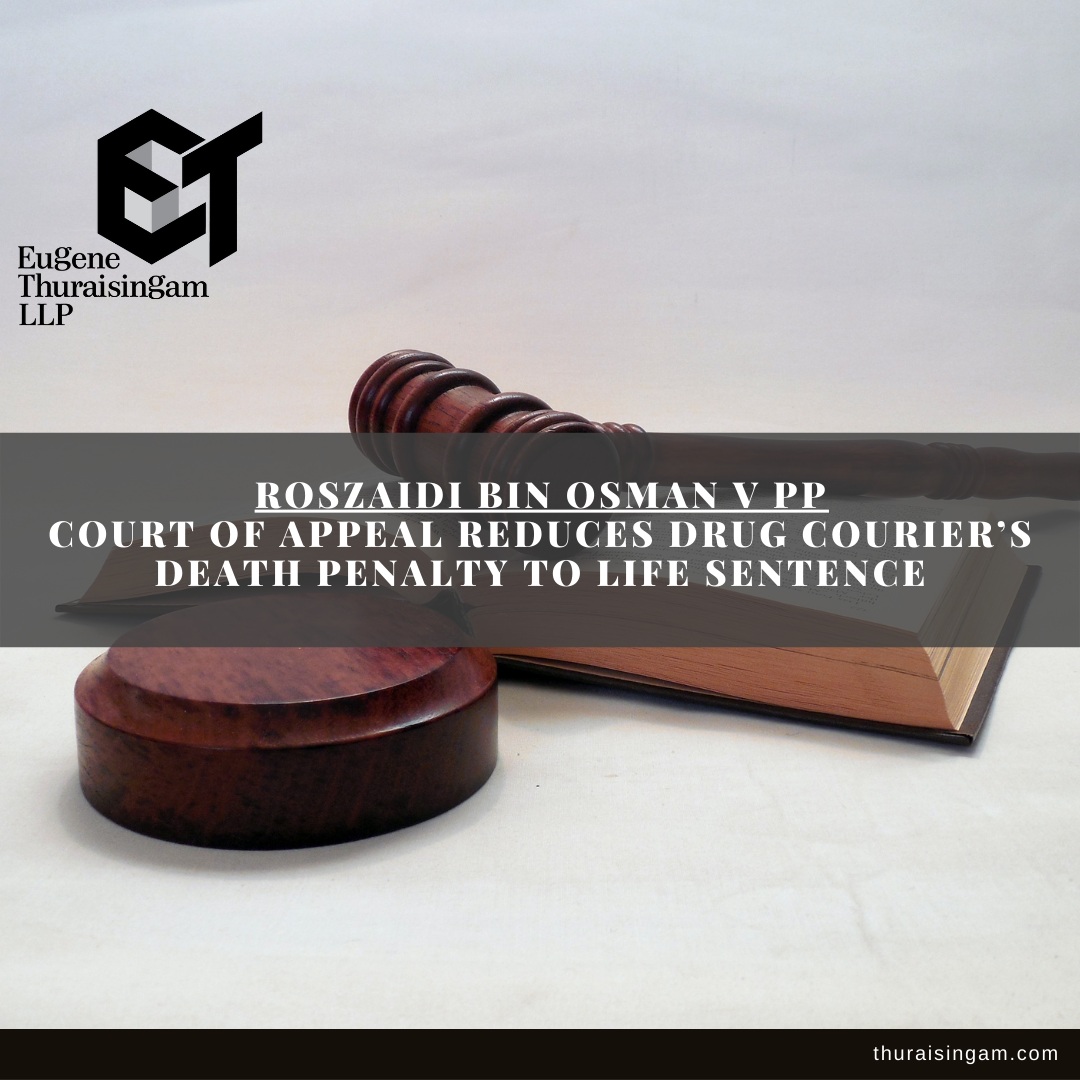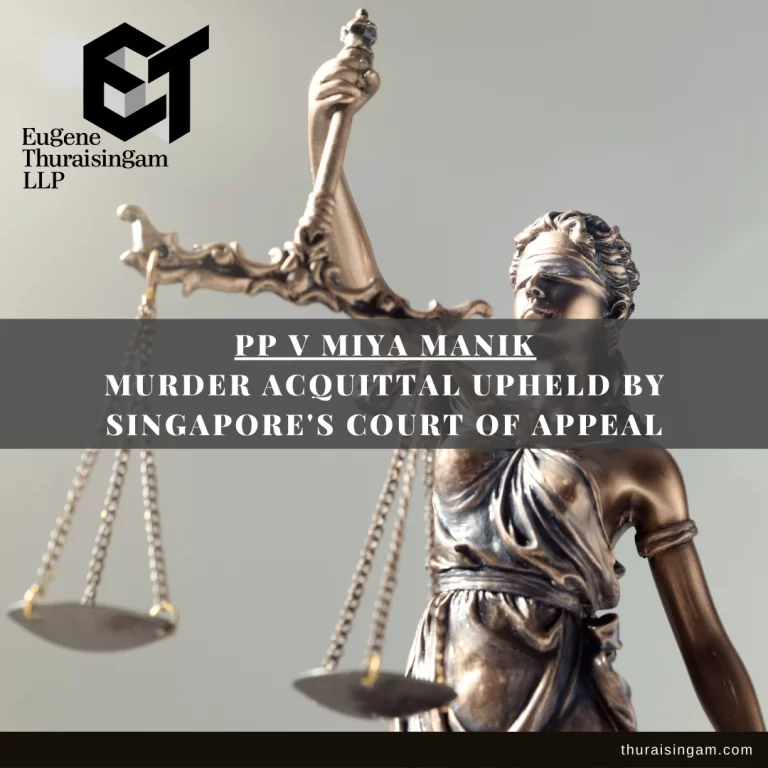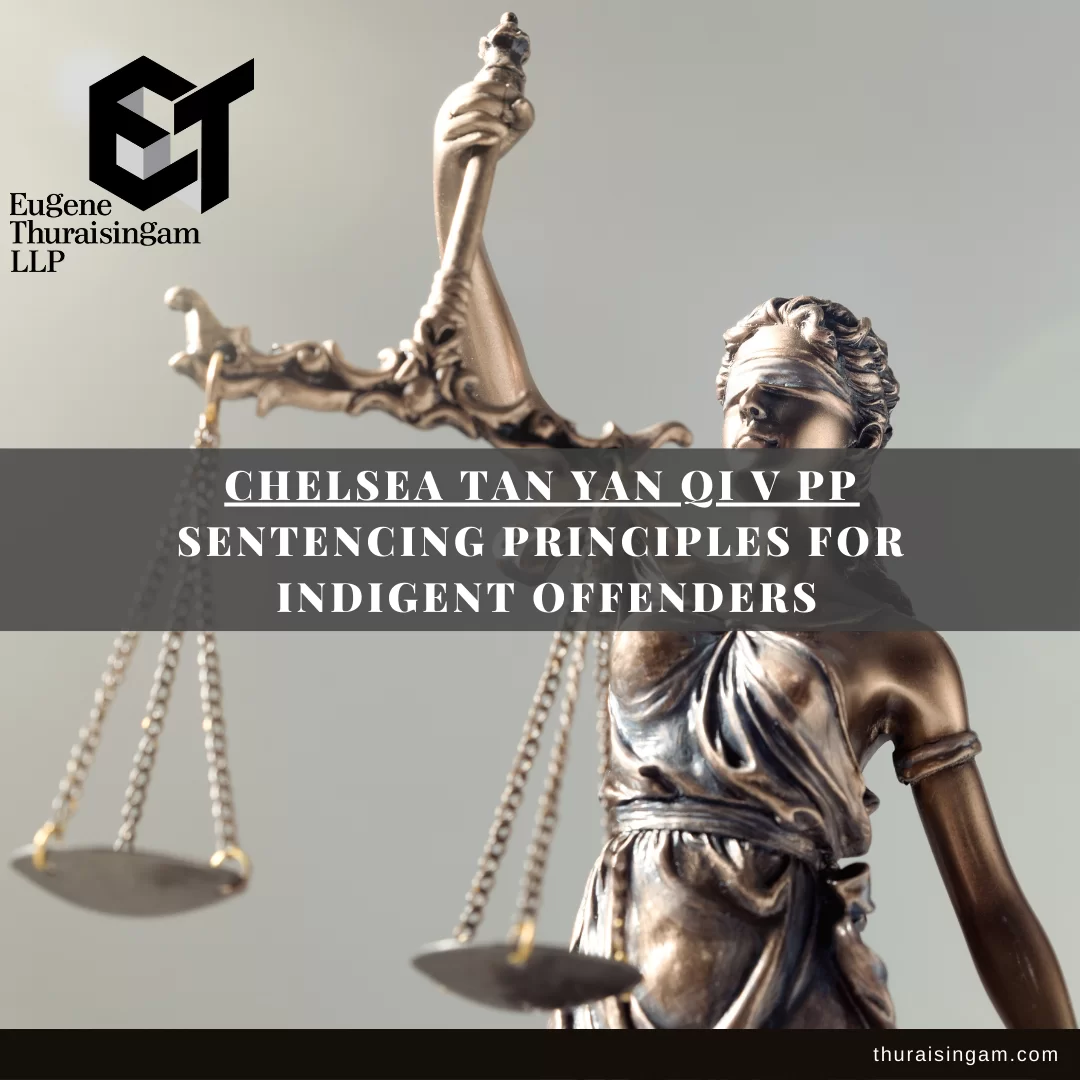Constitutional Challenges Against Death Sentences
Prabagaran a/l Srivijayan v Public Prosecutor and other matters [2017] 1 SLR 173
1. Introduction
We had conduct of four applications by persons who had been sentenced to death as a result of:- (a) being convicted with drug offences which attract the death penalty; and (b) not being given a certificate of substantive assistance by the Public Prosecutor.
Section 33B of the Misuse of Drugs read
Discretion of court not to impose sentence of death in certain circumstances
33B.—(1) Where a person commits or attempts to commit an offence under section 5(1) or 7, being an offence punishable with death under the sixth column of the Second Schedule, and he is convicted thereof, the court —
(a) may, if the person satisfies the requirements of subsection (2), instead of imposing the death penalty, sentence the person to imprisonment for life and, if the person is sentenced to life imprisonment, he shall also be sentenced to caning of not less than 15 strokes; or
(b) shall, if the person satisfies the requirements of subsection (3), instead of imposing the death penalty, sentence the person to imprisonment for life.
(2) The requirements referred to in subsection (1)(a) are as follows:
(a) the person convicted proves, on a balance of probabilities, that his involvement in the offence under section 5(1) or 7 was restricted —
(i) to transporting, sending or delivering a controlled drug;
(ii) to offering to transport, send or deliver a controlled drug;
(iii) to doing or offering to do any act preparatory to or for the purpose of his transporting, sending or delivering a controlled drug; or
(iv) to any combination of activities in sub-paragraphs (i), (ii) and (iii); and
(b) the Public Prosecutor certifies to any court that, in his determination, the person has substantively assisted the Central Narcotics Bureau in disrupting drug trafficking activities within or outside Singapore.
(3) The requirements referred to in subsection (1)(b) are that the person convicted proves, on a balance of probabilities, that —
(a) his involvement in the offence under section 5(1) or 7 was restricted —
(i) to transporting, sending or delivering a controlled drug;
(ii) to offering to transport, send or deliver a controlled drug;
(iii) to doing or offering to do any act preparatory to or for the purpose of his transporting, sending or delivering a controlled drug; or
(iv) to any combination of activities in sub-paragraphs (i), (ii) and (iii); and
(b) he was suffering from such abnormality of mind (whether arising from a condition of arrested or retarded development of mind or any inherent causes or induced by disease or injury) as substantially impaired his mental responsibility for his acts and omissions in relation to the offence under section 5(1) or 7.
(4) The determination of whether or not any person has substantively assisted the Central Narcotics Bureau in disrupting drug trafficking activities shall be at the sole discretion of the Public Prosecutor and no action or proceeding shall lie against the Public Prosecutor in relation to any such determination unless it is proved to the court that the determination was done in bad faith or with malice.
2. Background
In these applications, we argued that the applicants’ death sentences were unconstitutional. The primary ground of challenge was that Section 33B(2)(b), by vesting in the Public Prosecutor the power to decide whether or not to grant a certificate of substantive assistance to a person who has been convicted of an offence punishable with the death penalty, in substance vests the Public Prosecutor with a judicial power, and is therefore in breach of the constitutional principle of separation of powers.
3. Applications Dismissed
These applications were eventually dismissed by the Court of Appeal.






